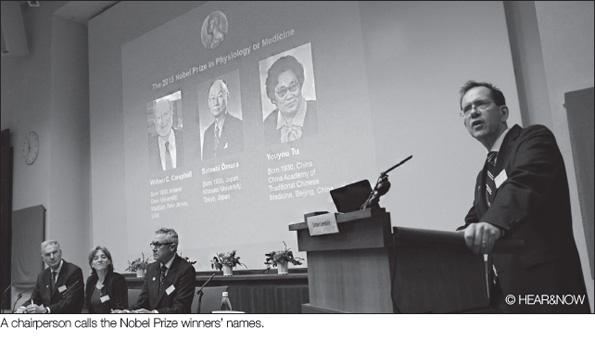
This year’s Nobel Prize season ended. Some Chinese and Japanese candidates were selected as Nobel Prize winners. Japan has had 21 Nobel Prize winners including this season. Nevertheless, Korea, which is sandwiched between Japan and China, hasn’t produced any Nobel Prize winners yet. Various press media outlets predicted that Korea wouldn’t have a winner even 20 years from now, and they issued related stories about why Korean scientists can’t get the prize.
Many experts pointed out Korea’s R&D(Research and Deployment) budget is too small to study deeply into a subject, but that is not correct. Korea’s R&D budget is the second largest. Israel’s R&D budget is the largest. Israel’s R&D budget accounts for 4.21% of its GDP. Korea’s R&D budget accounts for 4.15% of its GDP. The OECD average is 2.4%. Korea’s R&D budget is higher than average. Furthermore, the statistics from the Ministry of Strategy and Finance of Korea show that Korea’s R&D budget is increasing. That statement is different from the results.
The biggest problem is that Korean governmental policies interrupt creative research. The Korean government rushes professors for results when the government does its budget compilation. If professors can’t get results from research within 3 years, the government stops providing them with a budget. Therefore, it is difficult to research the basic sciences steadily.
Scientists who discover new scientific facts can get the Nobel Prize. It means scientists need creativity. Therefore, they need a budget. However, Korean scientists study to obtain a result in a short time. Most Nobel Prize winners had steady research for 20-30 years. Japan has supported long-term research since 2000. About 16 out of 21 of the Japanese scientists who were given the Nobel Prize have won the prize since 2000. Maskawa Toshihide, who was given the Nobel Prize in 2008, said, “Do not be overcome by a time crisis; look 30 years into the future.” That means steady support makes good results.
In Korea, it is a big problem that budgets for research are tied to a school’s reputation. In the case of USA, which has the majority of Nobel Prize winners, they assign tasks to the National Science Foundation (NSF) about executing research tasks and policy establishment for the basic sciences. In Korea, however, amateur public officials get power over the budget of all basic sciences and application technology research. That is why research funds lean toward Seoul. Last year, 20 universities, including Seoul National University, got 62% of all the research budget. Seoul National University got 4.6 billion won. The next is Yonsei University (2.4 billion won), which is also placed in Seoul. Among rural universities, Kyungpook National University(1.3 billion won), and Pusan National University(1.2 billion won), Chonbuk National University(79.9 billion won), Chonnam National University(76.8 billion won), and 5 more universities are on the list. However, the number of theses is an indicator of research results, and Pusan National University made 10.3 theses per professor. It is the most. Moreover, Pukyong National University, Chosun University, Keimyung University and Yeungnam University are on the top 20 list of theses per professor, but they are not on the top 20 budget list. Nobel Prizes are a global competition, but it’s so hard for Korea to compete due to the misappropriated budgets.
Professor Kang Han-young (Dept. of Chemistry) said, “R&D budget criteria are vague. None of the R&D is invested in the basic sciences, and the budget for the research is not distributed to scientists equally. Recently, the government has made efforts to support scientists. It created Grass Root Research Funds and One Bore-hole, but it is not enough. In the past, developing the domestic economy was the most urgent problem, so the Korean government targeted becoming a fast follower of the more successful countries. However, nowadays, Korea has joined the group of advanced countries, so the social and research environments should have become more proactive as a successful country. Someday, Korean scientists will win Nobel Prizes. I think that proper social recognition and a warm interest in the basic sciences will help us advance to win the Nobel Prize. We should respect each other’s diversity and autonomy. Moreover, we should still wait. In Japan’s case, they researched for a long time, and they have received good fruits. We need more time.”
Korea always expresses regrets about not winning the Nobel Prize because of excessive focus on performance, but Korea has not made any effort to create a fertile soil for scientific training on studying. If Korea wants a winning Nobel Prize forecast, they shouldn’t aim to get the prize, but the government, universities and society should aim to create a fertile soil for scientific training and studying.
By Kim Soo-min
sm36@cbnu.ac.kr


 All
All Society & Global
Society & Global






 Kim Soo-min
Kim Soo-min











